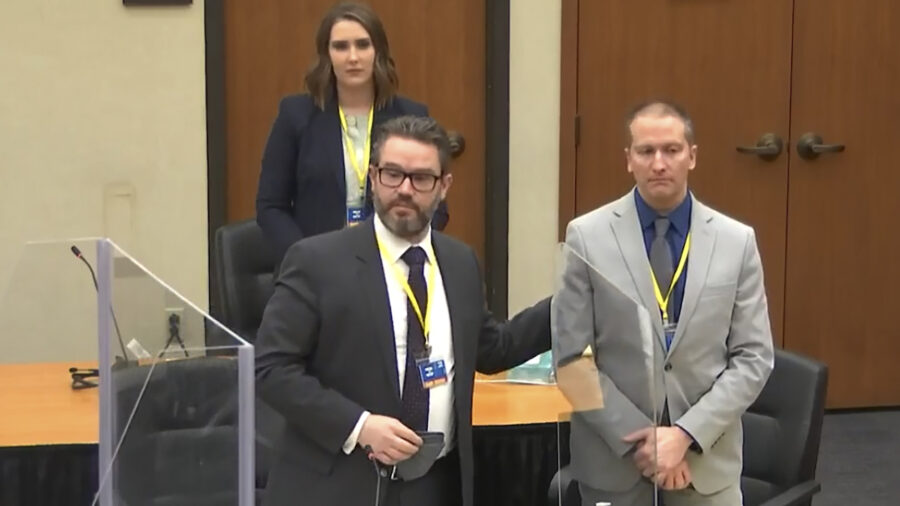Two jurors seated in the trial of Derek Chauvin, the former Minneapolis police officer facing murder charges over his arrest of George Floyd, were dismissed on Wednesday after they said news of a $27 million settlement with Floyd’s family meant they could no longer be impartial.
Hennepin County District Judge Peter Cahill had set aside three weeks for jury selection, beginning last week, and was back down to seven seated jurors after the two dismissals. Two new jurors were seated later on Wednesday: a man and a woman, both in their 40s, according to the court.
“We’re back to where we were this morning but it’s better than being behind,” Cahill said shortly before recessing for the day.
Mayor Jacob Frey joined some of Floyd’s relatives at a news conference on Friday to announce the city would pay them $27 million to settle their federal wrongful-death lawsuit against the city, one of the largest settlements of its kind.
One of the jurors selected last week told the judge on Wednesday morning that the settlement’s size shocked him and “kind of swayed me a little bit.”
“It kind of sent a message that the city of Minneapolis felt that something was wrong, and they wanted to make it right, to the tune of that dollar amount,” the juror, a man in his 30s, told the court.
Cahill dismissed him and a hispanic man in his 20s who expressed similar views. Some of the other seated jurors, who have been promised anonymity by the judge for the trial’s duration, said they had seen headlines about the settlement but were able to assure the court it would not influence them.
Chauvin’s lead lawyer, Eric Nelson, has complained to the court that publicity around the settlement makes it harder to seat a jury that can be impartial.
All potential jurors so far have told the court they know who Chauvin is and almost all have seen video of the police officer with his knee on Floyd’s neck as Floyd, 46, said he could not breathe. The case sparked global protests against police brutality and racism.
Chauvin, 44, has pleaded not guilty to charges brought by the Minnesota attorney general’s office of second-degree murder, third-degree murder and manslaughter, and has said he correctly followed his police training. He faces up to 40 years in prison if convicted on the most serious charge.
Revisiting Change-of-Venue Request
“You have elected officials—the governor, the mayor—making incredibly prejudicial statements about my client, this case,” Nelson told the court on Tuesday. “You have the city settling a civil lawsuit for a record amount of money. And the pretrial publicity is just so concerning.”
He has asked the judge to revisit the defense’s earlier request to delay and move the trial to another county, which Cahill has said he will consider and hoped to issue his ruling on Friday.
Cahill agreed with Nelson’s request to recall the seven jurors already seated to see if the settlement news might bias them, and they appeared one by one by videoconference on Wednesday morning.
Cahill said earlier news articles, including some reporting that Chauvin had agreed to plead guilty to federal charges last year, were more “problematic” than the settlement news.
Prosecutors oppose Nelson’s efforts to move the trial or dismiss jurors who heard about the settlement.
“I think that this $27 million settlement has been frankly overblown,” Steve Schleicher, a lawyer for the prosecution, told the court, saying many jurors interviewed since had shown no knowledge of the settlement.
The court plans to have opening arguments begin on March 29.
By Jonathan Allen

